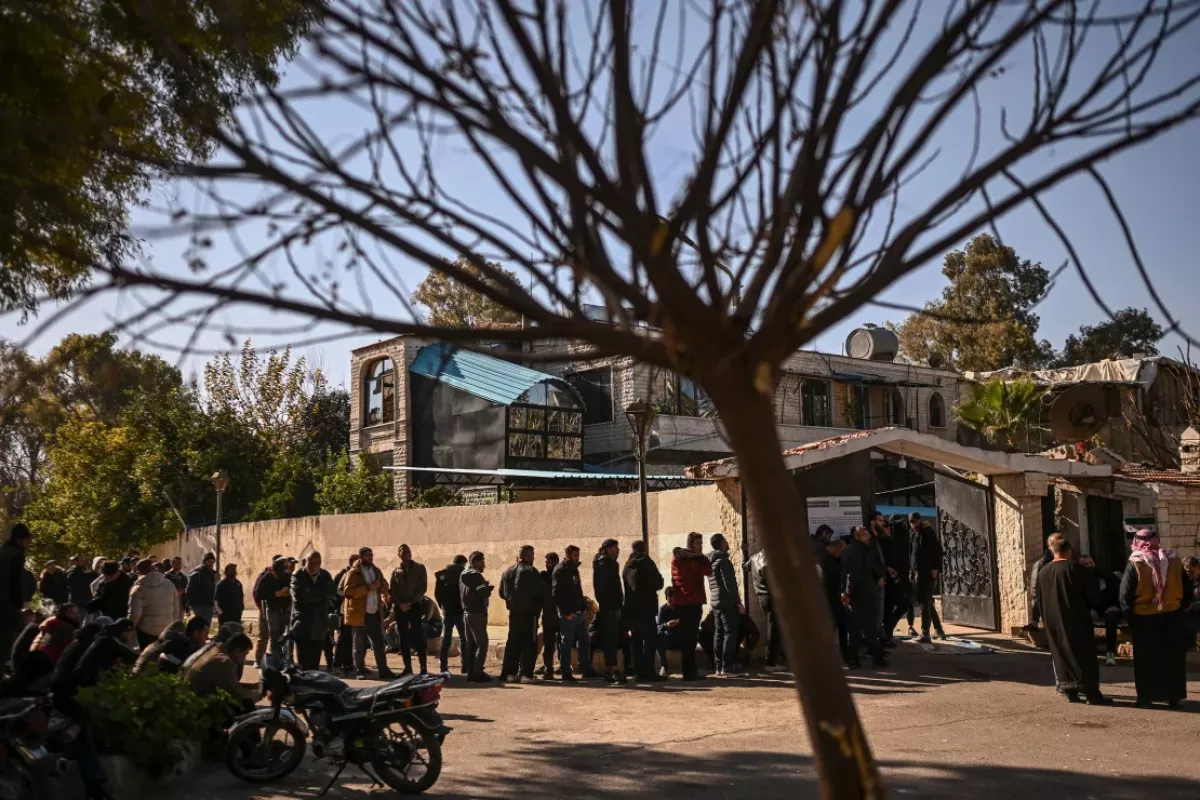Former Assad forces surrender weapons to new Syrian government PHOTO
Former security forces of the Syrian regime have begun surrendering their weapons to the rebel-linked transitional government in the southern city of Latakia, as shown in footage obtained by Agence France-Presse (.
The long queues were seen of men dressed in civilian attire handing over firearms to officials from the transitional government’s Ministry of Interior. Officials informally interviewed the men, taking mugshots, and collecting personal weapons, with piles of handguns and ammunition visible in the corners of the government office, Caliber.Az reports, citing foreign media.
The disarmament is part of broader efforts by Syria’s new leadership, led by Hayat Tahrir al-Sham (HTS), to establish a peaceful transfer of power and secure international recognition.

Mohammad Al-Bashir, a leader affiliated with Syrian rebel groups, has been appointed caretaker prime minister for a three-month transitional period. In a televised address last week, Al-Bashir announced that ministers from both the HTS-linked Salvation Government and the Assad-era civil service would retain their roles until a new government is formed by March 1, 2025.
HTS leader Abu Mohammad al-Jolani, now using his real name Ahmad al-Sharaa, has taken a prominent role in advocating for the international community’s engagement with the new administration. In an interview with the BBC, Jolani called for the lifting of sanctions, asserting that they unfairly target Syria’s current government.
“Sanctions were aimed at the old regime. The victim and the oppressor should not be treated the same way,” Jolani said, while dismissing concerns over HTS’s designation as a terrorist organization by several governments, including the United States and the United Nations. He emphasized that the group has not committed acts of terror in recent years.
Jolani also reassured the international community that Syria’s new government would not emulate the Taliban’s governance in Afghanistan. “Our government will respect Syrian culture, support women’s education, and ensure inclusive dialogue to represent all Syrians,” he stated.
The transitional government has garnered diplomatic attention, with UN Special Envoy Geir Otto Pedersen meeting Jolani in Damascus earlier this week. Pedersen expressed optimism about lifting sanctions, noting, “We hope to see an end to sanctions soon, allowing for the rebuilding of Syria.”
Additionally, the United States, European Union, United Kingdom, Qatar, and Türkiye have reportedly initiated contact with the new administration.
Similar weapon-return programs have been implemented in other cities, including Daraa. Syrian state media reported that former regime soldiers and police officers in these areas have received temporary identification cards from the transitional government. These cards permit their movement within “liberated” zones while legal proceedings against them are underway.
Notably, the Bashar al-Assad regime, known for its brutal crackdown on dissent, faces ongoing scrutiny for atrocities committed during the civil war, including torture, chemical weapon use, and the deaths of over 306,000 civilians between 2011 and 2021, according to UN estimates.
The transitional government’s efforts to disarm former regime forces and foster stability mark a critical juncture for Syria’s post-conflict reconstruction and its quest for international legitimacy.
By Khagan Isayev








